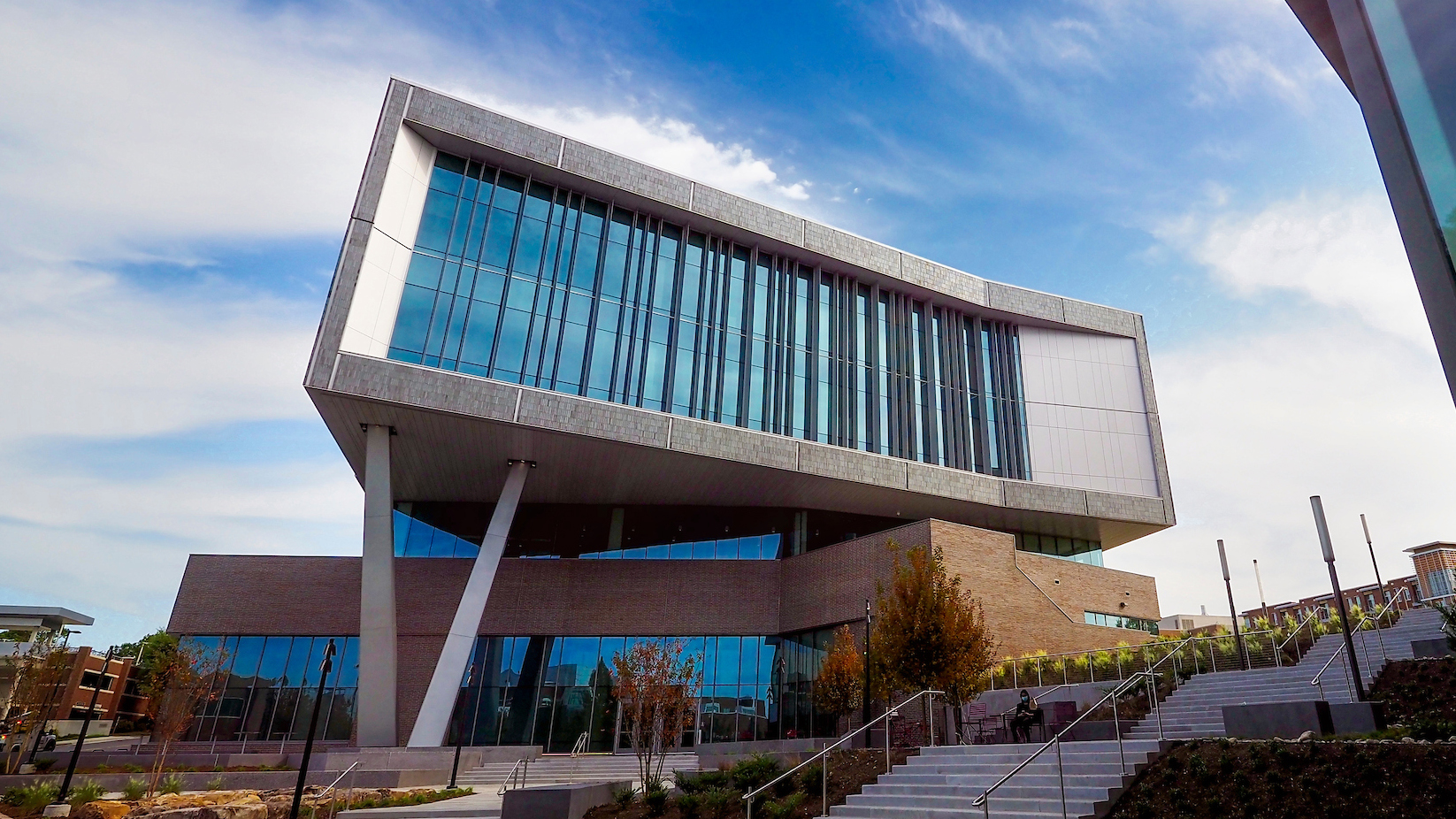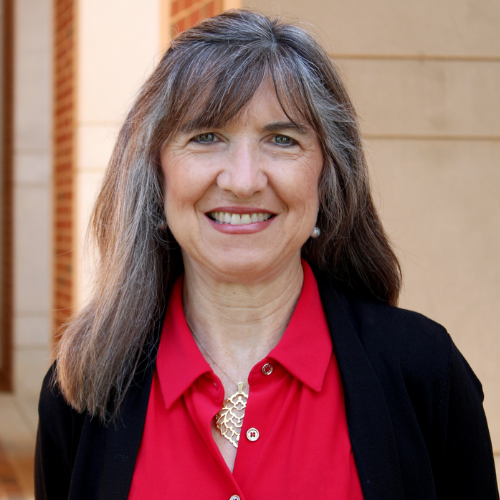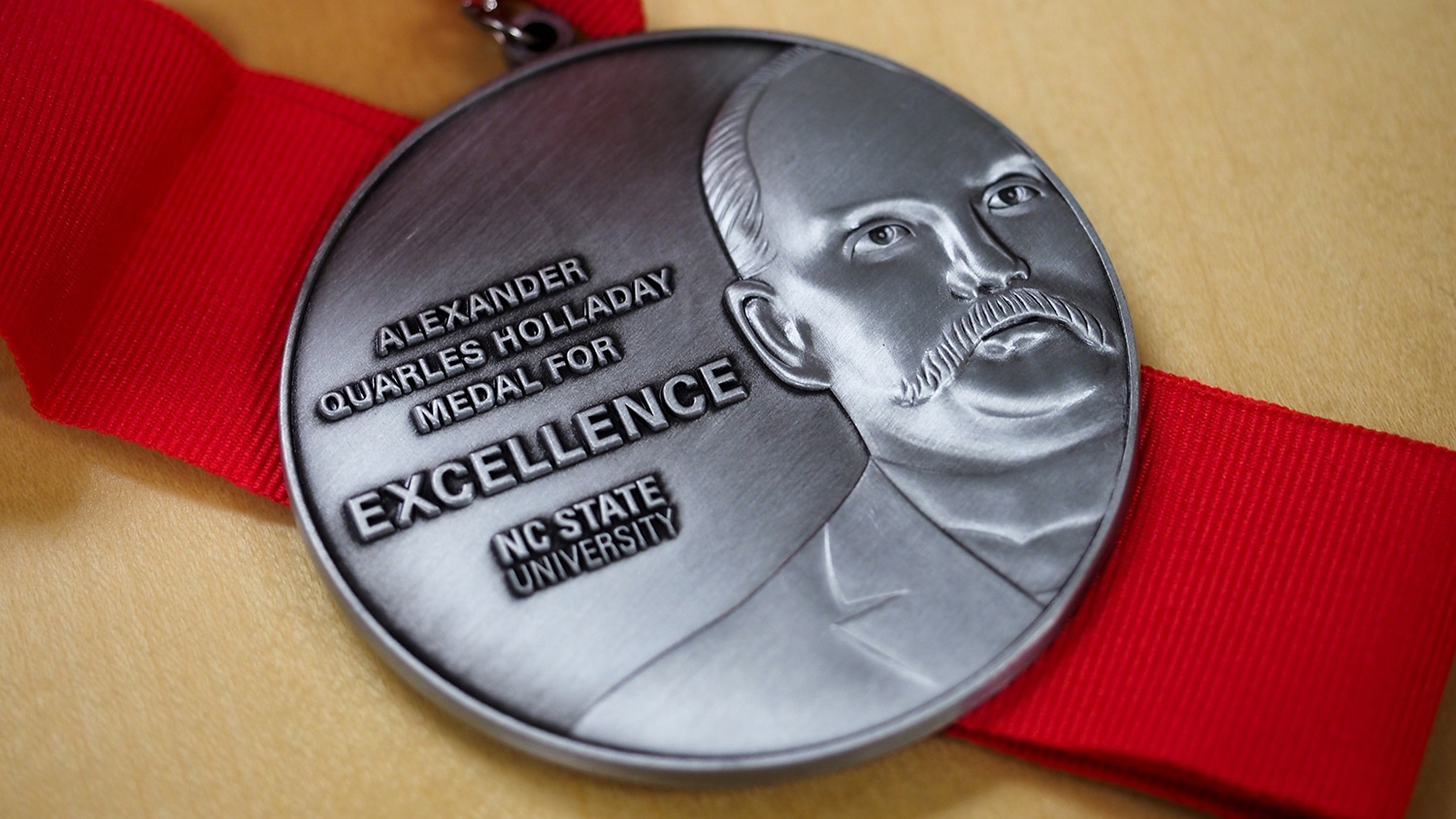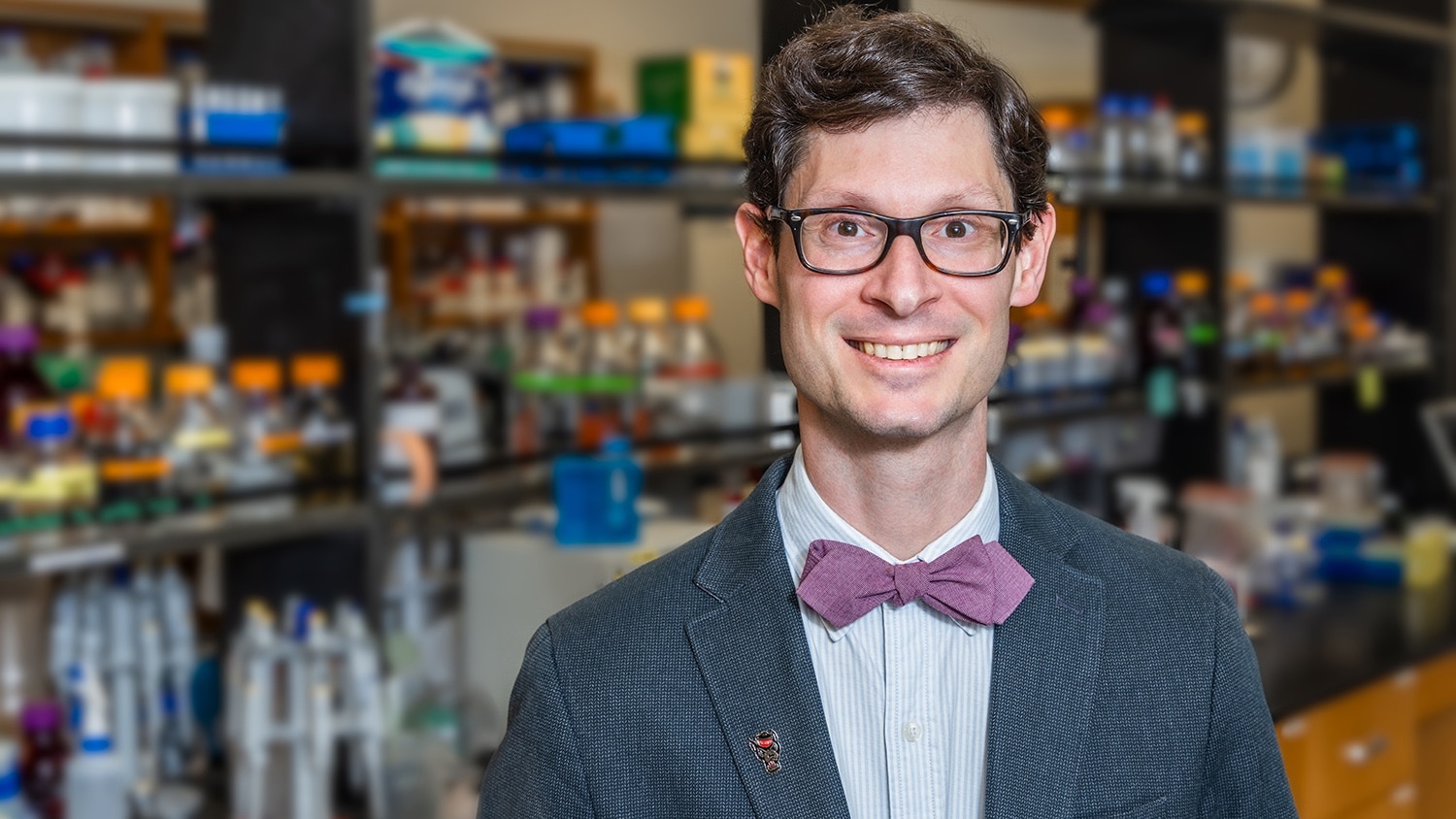Meet the new CCEE Head: Dr. Jacqueline MacDonald Gibson

Though she is new to the role and department, CCEE Head Dr. Jacqueline MacDonald Gibson is a veteran when it comes to academia and research in North Carolina. Before her recent roles as professor and chair of the Department of Environmental and Occupational Health at Indiana University, Bloomington, she spent 12 years on the faculty of the Department of Environmental Sciences and Engineering in the Gillings School of Public Health at University of North Carolina at Chapel Hill. She has continued to conduct important water contamination research in the state over the years.

Before MacDonald Gibson joined CCEE in August, there was already a Wolfpack member in the family.
I am thrilled to return to North Carolina,” MacDonald Gibson said. “I raised my children here and regard North Carolina as home. My husband grew up in Raleigh and is an NC State alumnus, so our return is a welcome homecoming for him, as well.
Engineering also happens to run in the family.
“I am the proud mother of three sons and two stepsons. Four of the five are engineers: three are aerospace engineers, and one is a music production engineer.”
In her research, MacDonald Gibson parses complicated environmental problems into manageable elements that can be modeled mathematically and re-integrated to inform environmental and public health policy decisions. She has worked across the globe, from the U.S. to the United Arab Emirates, examining environmental risks to health at the scale of communities, building models that integrate knowledge of how pollutants are distributed through communities, how people become exposed to pollutants and other environmental risks factors, and how these exposures, in turn, increase risks of illness or premature death.
MacDonald Gibson’s accolades include being named an RTI University Scholar and receiving the IBM Junior Faculty Development Award and the Newton Underwood Award for Excellence in Teaching, Department of Environmental Sciences and Engineering from UNC-Chapel Hill.
In her first few weeks as department head, MacDonald Gibson offered insight into her new role and future plans in the following Q&A. You can learn more about MacDonald Gibson’s professional background, accolades and research at go.ncsu.edu/macdonaldgibson.
What makes you excited about being head of CCEE?
MACDONALD GIBSON (MG): I am thrilled to join an exceptionally talented group of engineering faculty who are passionate about empowering students to improve the world for all. CCEE is not only one of the nation’s largest civil engineering departments but also one of the most talented. For example, one-third of our faculty have received a CAREER award from the National Science Foundation. The CAREER award is the most prestigious grant given to young faculty members to recognize their potential to serve as academic role models and to lead advances in science and engineering.
What are your priorities as department head?
MG: My top priority is to continue to hire the best people while also enhancing the racial and gender diversity of the department’s faculty and students and, ultimately, the diversity of the fields of civil, environmental and construction engineering. Our nation can achieve its greatest potential in engineering only by ensuring that our entire talent pool is represented in our engineering professions. Real or perceived barriers that discourage some groups of young people from pursuing engineering careers result in a loss of brainpower and creative ideas, to the detriment of our entire society.
Are there any specific areas or initiatives you intend to focus on as department head?
MG: I am especially excited about working toward advancing equity in access to all aspects of civil infrastructure, including high-functioning water and sanitation systems, modern and low-emissions transportation systems, safe buildings and livable communities.
What do you see as key strengths of CCEE?
MG: I asked this question of the CCEE faculty when interviewing for the department head position. Uniformly, they responded that CCEE’s strength is its people, including faculty, staff and students. The department promotes an atmosphere of collegiality, prioritizing the mutual goal of engineering a better world over personal advancement. Another great strength is the breadth of civil engineering sub-disciplines represented in the department. Our faculty members have expertise spanning the vast range of activities in which civil engineers may be involved — from designing highway and rail systems, to constructing buildings that can withstand earthquakes, to designing new paving materials that can decrease costs while also limiting environmental impacts, to preparing our communities to be resilient to extreme weather and climate, to tracking down and eliminating sources of air, water and soil pollution that endanger health.
Do you have a message for alumni?
MG: You are part of an exceptionally talented group. CCEE alumni have led some of the world’s most ambitious projects in civil, construction and environmental engineering, leaving their mark by improving the quality and safety of every aspect of infrastructure that supports communities but that many people take for granted. Examples include safer bridges, buildings and transportation systems and cleaner environments. I look forward to meeting as many of you as possible this year. Please visit us in Fitts-Woolard Hall.
Favorite vacation spot or favorite place you’ve traveled to?
MG: The North Carolina mountains, with the endless view of rolling blue ridges, are my slice of heaven.
This story was first published in the CCEE Fall 2022 Newsletter.
- Categories:


